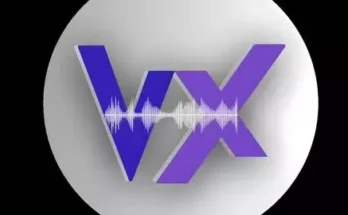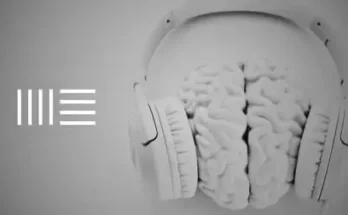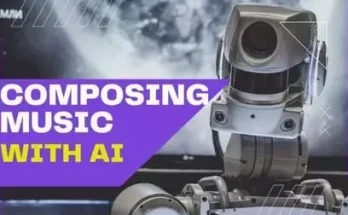Drum Programming TUTORiAL
MP4 | Video: h264, 1280×720 | Audio: AAC, 44.1 KHz
Language: English | Size: 1.61 GB | Duration: 2h 38m
A step by step guide to help you go from complete beginner to creating professional grade drum tracks
What you’ll learn
Learn how to create MIDI drum beats that sound like a real drummer played them without any prior drum programming experience.
Learn how to program beats in a variety of feels ranging from straight and swing time, to halftime and shuffle feels.
Learn how to program beats in a variety of styles ranging from Pop, to Rock, to Metal, and everything in between.
Learn how to create realistic sounding drum fills, hi hats, ride and crash/splash cymbals.
Learn how to create realistic sounding ghost notes on a snare drum.
Learn how to self produce your drum tracks to keep your songs from sounding boring.
Learn how to recycle old beats to create new ones. Saving hours of studio time.
And much more…
Requirements
No programming experience needed. You will learn everything you’ll need to know.
Required: Laptop or desktop computer
Required: Logic Pro X or GarageBand (On a Mac) or any digital audio workstation (DAW) of your choosing.
Optional: A drum sampler plugin. In this course I create beats using everything from the stock “drummer” function in logic to Ez Drummer 2 & 3, to Ugritone Drum Samplers
Optional: MIDI keyboard. I will be using the QWERTY keyboard for any examples I program completely from scratch but you may find it easier to follow along with an external MIDI controller.
Description
If you’re just starting out with programming drums but you find it to be intimidating or if you’ve been doing it for a little while but are not a drummer yourself and find the process to be tedious and time consuming, I’m going to fix all of that for your right now.Get instant lifetime access and learn the following…How to program drums from scratch that actually sound real in genres ranging from Rock, to Metal to Pop.How to program beats in a variety of time signatures ranging from 4/4 to 6/8How to program beats in a variety of feels ranging from straight and swing time, to halftime and shuffle feelsHow to create realistic sounding drum fills, hi hats, ride cymbals, and ghost notes.How to work with pre-existing MIDI drum grooves to create your own patterns while retaining the human feel of a real drummer and saving tons of time.How to create musical tension and dynamics in a song solely by changing the drumsHow to create a set and forget workflow to keep you in the creative mindset without worrying about the technical aspects of recordingHow to self produce your own musical ideas for your band, your songwriting team, or your own solo projectsHow to take the knowledge found inside the course to start a side gig as a drum programmer for hireWARNING!I’m using Logic Pro X as my digital audio workstation (D.A.W) so some key commands and terminology may not apply to you if you’re using a different program (Pro Tools, Ableton, Reaper, Cubase etc.) but the core concepts and strategies implemented inside the course apply to any and all digital audio workstations.
Overview
Section 1: Introduction
Lecture 1 Course Trailer
Lecture 2 Welcome to the course! Here’s an overview
Lecture 3 What you will need for this course
Section 2: Session Setup
Lecture 4 Part 1 – What Is MIDI?
Lecture 5 Part 2 – Drum MIDI Grooves vs Drum Samplers. What’s the difference?
Lecture 6 Part 3 – Setting Up Your Session
Lecture 7 Part 4 – 3 Ways To Use MIDI
Lecture 8 Part 5 – Creating A Beat From Scratch
Section 3: How To Make Programmed Drums Sound More Realistic
Lecture 9 Part 6 – Overview
Lecture 10 Part 7 – Understanding The Humanize Function – Note Length
Lecture 11 Part 8 – Understanding The Humanize Function – Velocity
Lecture 12 Part 9 – Understanding The Humanize Function – Note Position
Section 4: Case Studies
Lecture 13 Part 10 – Programming A Rock Beat In 4/4 With Toontrack’s Ez Drummer
Lecture 14 Part 11 – Programming A Ballad Beat In 6/8 With Ugritone’s Vintage Doom Kit
Section 5: How To Produce Your Drum Tracks
Lecture 15 Working With Pre-Existing Drum Grooves
Lecture 16 Creating Musical Tension By Using Variation
Lecture 17 Time Saving Hack #1 – Borrowing Beats
Lecture 18 Time Saving Hack #2 – Creating 16th Note Patterns By Recycling 8th Notes
Lecture 19 Final Thoughts
Section 6: Bonus Content
Lecture 20 From Rock To Metal – Case Study #1 Revisited
Lecture 21 How To Create Songwriting Templates
If you’re just starting out with programming drums but you find it to be intimidating or if you’ve been doing it for a little while but are not a drummer yourself and find the process to be tedious and time consuming, I’m going to fix all of that for your right now.




